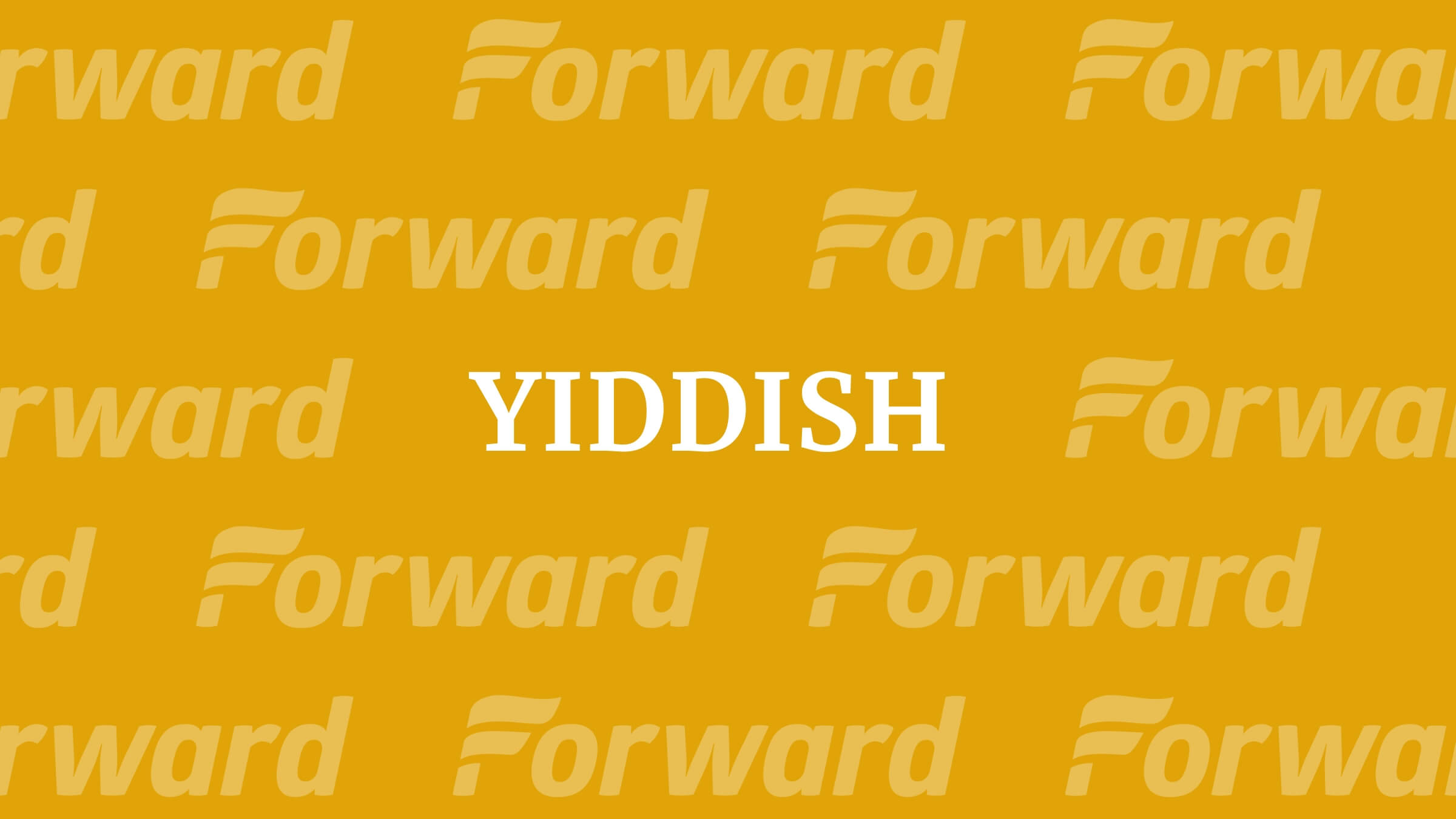ווידעאָ: מאָטי אילאָוויטשעס ליד קעגן דעם קאָנפֿאָרמיזםWATCH: Motty Ilowitz’s song critiques conformity
„יעדער קיינער“ איז אַ רוף צום חסידישן עולם ניט סתּם נאָכצוטאָן אַלץ וואָס אַנדערע דערוואַרטן פֿון זיי.

Graphic by Angelie Zaslavsky
מליצהדיקע ווערטער זענען שווער אויסצומײַדן בײַם באַשרײַבן מאָטי אילאָוויטשעס מוזיק. ווי אַ זינגער איז ער מלא־טעם און ער איז אויך אַ טאַלאַנטירטער קאָמפּאָזיטאָר וואָס שאַפֿט מוזיק אין אַ ריי סטילן. זײַן גאונות איז אָבער בײַם אָנשרײַבן לידער אויף ייִדיש וואָס זענען אויפֿן ערשטן בליק זייער פּשוט, אָבער אין דער אמתן אַנטהאַלטן טיפֿזיניקע מעטאַפֿאָרן, וואָס אַנטפּלעקן זיך ערשט בײַם צווייטן אָדער דריטן מאָל וואָס מע הערט זיך צו. ער איז אויך, ווי אַ סטיליסט, איינער פֿון די בעסטע הײַנטצײַטיקע ייִדישע לידער־שרײַבער אויף דער חסידישער גאַס.
לעצטנס האָט אילאָוויטש אַרויסגעלאָזט אַ מוזיק־ווידעאָ פֿאַר זײַן ליד „יעדער קיינער“, וואָס געפֿינט זיך אויף זײַן נײַעם אַלבאָם „רעיונות“. „יעדער קיינער“ איז אַ ליד קעגן דעם קאָנפֿאָרמיזם, אַ רוף צום חסידישן עולם ניט תּמיד צו טאָן דאָס, וואָס ”יעדער וויל“. אין די חסידישע קרײַזן, וווּ ס׳איז אָפֿט מאָל דווקא ניט קיין מעלה צו זײַן „אַנדערש“ און מע וויל זיך נישט פֿילן אַרויסגעשלאָסן פֿון אַנדערע, אַפֿילו ווען עס שאַט פֿינאַנצניעל צי אַפֿילו גײַסטיש, איז אילאָוויטשעס צוגאַנג אָפֿט אַ קאָנטראָווערסיעלער. כאָטש ער איז ווײַט ניט דער איינציקער זינגער צו קריטיקירן דעם קאָנפֿאָרמיזם אין די חסידישע קרײַזן, איז זײַן „יעדער קיינער“ פֿון די זעלטענע לידער, וואָס טוט דאָס מיט הומאָר און חן. מע זאָגט בײַ ייִדן אַז מע כאַפּט מער פֿליגן מיט האָניק ווי מיט עסיק און אילאָוויטש ווייסט, אַ פּנים, אַז זײַן ליד וועט האָבן אַ השפּעה אויף מער מענטשן, טאָמער ס׳קלינגט ניט ווי אַ קריטיק.
כאָטש ס׳איז קלאָר אַז דער ווידעאָ האָט אין זינען די חסידים, האָט דאָס ליד וואָס צו זאָגן דעם ברייטן עולם בכלל. אילאָוויטש האָט באַשלאָסן אַרײַנצושטעלן אונטערקעפּלעך מיט איבערזעצונגען אויף ענגליש און העברעיִש, כּדי אַז די וואָס פֿאַרשטייען ניט קיין ייִדיש זאָלן אויך קענען געניסן דערפֿון.
















